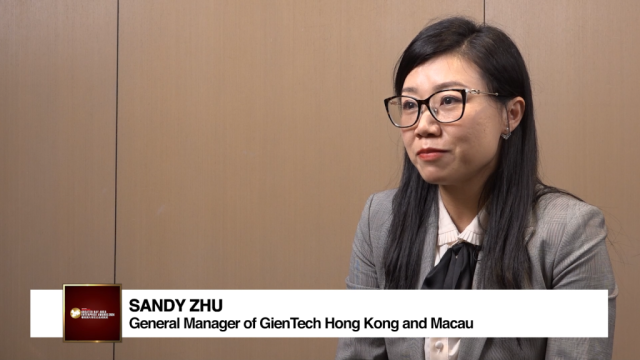Reaching new heights
By Won-Joon LeeThe Asia Pacific (APAC) airline industry has been experiencing unprecedented growth in recent years. The Chinese airline players, especially, are leading the way with significant growth and expansion. This can be attributed to the country’s rapid urbanization and economic upswing leading to an increase in consumer spending and purchasing power from within (outbound travel) as well as a growing interest in China as a holiday and business destination without (inbound travel). As a result, about 360 million more APAC travelers are expected from the region by 2014. This also means a potential windfall for Hong Kong as it positions itself as the gateway to China as well as a launching pad for the Chinese to the rest of the world; Hong Kong is seen to be a popular first and last stop for travelers when they embark on their journey through the Far East and a popular destination for the Chinese exploring tourism for the first time.
To cater to this increase in demand for APAC travel and to remain relevant and well ahead of the competition regionally and globally, APAC airlines have to take this opportunity to look into their current business operations to ensure that it can cater to the anticipated increase in traveler numbers without sacrificing its service standards, margins or profitability. With this in mind, APAC airlines should focus their energies on business innovation, cost reduction measures and operation excellence strategies.
A possible area of focus is in overseas station operations. Accenture’s research reveals that overseas station operations typically experience weaknesses in three key areas: operational inefficiencies, sub-optimal control and compliance and a lack of operational sustainability.
Currently, airlines outsource services to support their overseas station operations, like food catering, baggage handling and ticketing. However, for a small destination in a country in which the airline only touches down once or twice weekly, it becomes unsustainable for the airline to pay for services that are less frequently utilized, thus resulting in operational inefficiency.
Sub-optimal control and compliance occurs when there is a non-standard execution of processes among overseas stations. As they are detached from airline headquarters, these stations traditionally experience a high turnover rate of staff leading to inconsistencies in operational execution. In growth markets (like China and India), where manpower capabilities are sometimes not aligned to the country’s economic growth, there may be difficulties employing suitable staff able to ensure consistency in process execution that meets the airline’s expectations.
In addition, overseas stations may not enjoy the flexibility to move resources as routes expand and contract according to the airline’s growth, economic cycles or even natural disasters. This leads to overseas station redundancies and the airline’s inability to be nimble in responding to change.
To address these areas of vulnerability, Accenture has worked with numerous airlines in streamlining and improving their financial and accounting processes at both their headquarters and overseas stations. According to Accenture’s research, APAC airlines can capture a productivity gain of 16 per cent to their baseline over seven years, if the above challenges are addressed. Accenture has identified a framework of six initiatives that airlines can adopt to industrialize overseas operations.
These initiatives are: centralizing the finance and accounting functions for better overall financial control, establishing segregation of duties to improve compliance, streamlining banking facilities to improve human capital and vendor payment management,, creating a standardized timetable for month-end closure for more convenient financial management, implementing a service management framework that measures operational efficiency and compliance and introducing workflows to remove manual processes.
These measures are suited to APAC airlines seeking to expand globally as it requires only a short implementation timeframe, typically completing the transition in three to four months. Multi-lingual operation centres also provide a control environment that can easily respond to any global economic shifts.
To take full advantage of this anticipated growth, APAC airlines must be prepared to continue significant investments in infrastructure, labour and operations. The challenge remains in maintaining flexibility and efficiency while making such investments amidst rising competition for customer loyalty in a rapidly expanding sector.
Hong Kong is well positioned to benefit from this rapid expansion as the key transit point for both inbound and outbound travelers. It must anticipate and prepare itself for increased volumes and more competition from the Chinese airlines and its emerging ASEAN counterparts. However, even if the industry is well poised to reap the fruits, questions still remain - Is the Hong Kong airline industry ready for competition? Is it ready for the anticipated increase in travel volume? Can the airline station operations meet the standards expected of them? Is Hong Kong ready for more extended operations?
























 Advertise
Advertise








